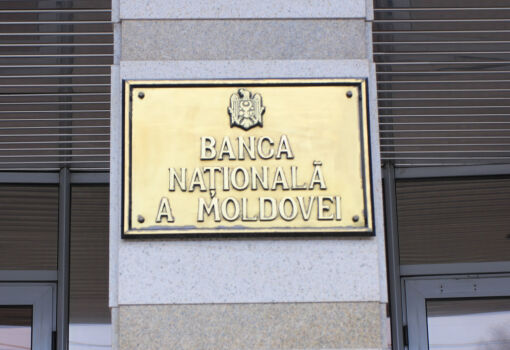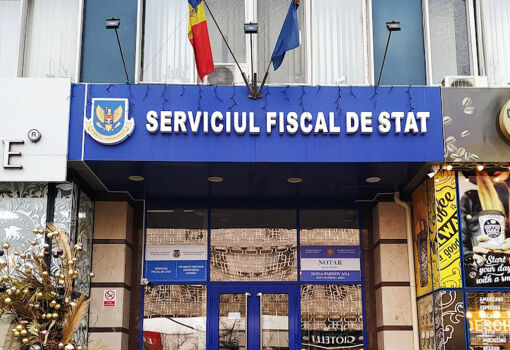
With support from the EBRD’s Star Venture program, funded by the EU and Italy, Elena Oprya and Viorica Vanica are scaling an evidence-based self-therapy app that aims to make mental health accessible and affordable for all.
Born and raised in Moldova, Elena had an entrepreneurial spark from her teenage years. She launched her first ventures early on, adapted her studies to entrepreneurship and eventually moved to London to work in a startup studio that helped other founders create viable products.
“You come up with an idea, they implement it for you,” Elena says. – Working there for three years, I saw the launch of twelve startups, one of which eventually became a unicorn (breaking the $1 billion capitalization boundary). This experience definitely gave me a proper understanding of the startup ecosystem and taught me the basics of fundraising, proof of concept, marketing and so on.
Elena was undergoing traditional therapy at the time, but soon realized that it wasn’t sustainable in the long run. Besides, one session in London costs ?250 (about 300 euros).
She experimented with all sorts of sessions and apps, but found that they mostly treated her symptoms rather than changing her attitude to the problems or addressing the root cause of the difficult emotions.
“I wanted to understand how to deal with stress, anxiety and feelings of anger: why they arise and how to prevent them in the future,” explains Elena Oprya. – During the quarantine due to COVID, I got a one-year license for therapy. The course helped me understand the basics of cognitive and behavioral therapy, such as how to manage emotions. That’s when it hit me: therapy followed a structure, almost like a protocol. Perhaps this system could be recreated.”
Along the way, Elena involved her friend Viorica Vanica, who became a co-founder and her “right hand” in all endeavors – the executive director. Later, Vladimir Melnik joined the team and became technical director.
In addition to them, several professional psychotherapists with long experience work in the project: Sergiu Toma, Adela Moldovan, Brent Bounds and others.
Elena and Viorica started by creating 50 therapeutic audio tracks and putting them out for free. “Only when we started selling the first recordings did we move on to creating an app,” says Elena.
Soon the SelfTalk team submitted their idea to a competition, and were among the top five invited to the Hero Training program. With €178,000 from private venture capitalists and a €60,000 grant from the UK, SelfTalk began to grow.
After winning the startup competition, Elena and Viorica were introduced to business angels and invited by preaccelerators to Silicon Valley. Their idea started to gain momentum and the pair began developing the first version of their evidence-based audio therapy app, Spotify for Therapy. You open the app, choose the problem you need to solve, and then listen to a psychologist explain how to work with it.
But as they tested how well the product fit the market, a clear pattern emerged: users wanted more than just passive listening. They wanted engagement. So the team moved on to what Selftalk is today – a guided self-therapy journey. They enlisted renowned psychologists to share their therapeutic protocols, helping users not just cope, but truly understand and transform their mental health.
After spending three years in the US and developing a proof of concept, the two entrepreneurs felt it was time to work in their native Moldova.
“I was 28 years old at the time. Although we had the opportunity to stay in Silicon Valley and build Selftalk in the world’s largest technology center, coming back to Moldova turned out to be a surprisingly strategic business move. Once I arrived in Chisinau, I was able to immerse myself in deep work and focus. Although I still miss the hustle and bustle of London – from time to time,” says Elena.
Selftalk is designed to mimic real-life therapy sessions, helping users reframe their negative inner voice the way a therapist might. As Elena explains, the app is not meant to replace professional therapy, but rather to complement it by helping users connect more deeply with themselves. You may walk out of a therapist’s office with a list of actionable steps, but after a few days, those ideas may be gone. That’s where Selftalk comes in, strengthening self-therapy skills and turning reflection into an ongoing habit. The Selftalk team is currently focused on building its client base, targeting primarily working professionals with high levels of stress.
As a beneficiary of the Star Venture program, Selftalk underwent a comprehensive business diagnostic, connected with international mentors and industry experts, and successfully completed three consulting projects. This specialized support helped the business reach the next level, sharpen its vision and mission, refine its positioning and communication strategy, strengthen its community and enhance its brand image.
As Elena progressed on her entrepreneurial journey, her raison d’être evolved. What started as a quest to build something innovative has evolved into a mission to create authentic impact. “The self-therapy skills we provide; the change they create … it became my answer to the question, ‘Why do I exist?” she says.
As Elena Oprya points out, their product is already being used in the UK, USA, Moldova and Romania. And although the target was women at first, the majority of users are men.
That said, there is a small team working on the startup, mostly from Moldova. “We love the Moldovan IT park,” says Elena. – If I pay a developer ?3000 in London, the taxes are ?800. In Moldova, it’s less than ?200. The rest goes into the product, growth, and the team,” explains Oprea.
Clients began sharing vivid stories of how family ties were rekindled and emotional patterns were finally broken. It was this feedback that fueled Elena Oprya and her team during the ups and downs of building a startup.

